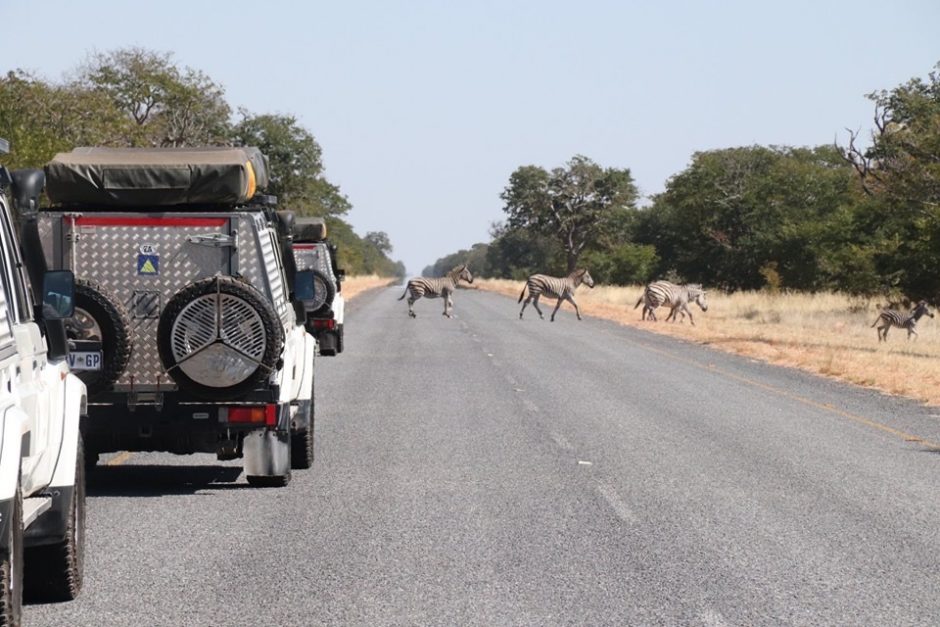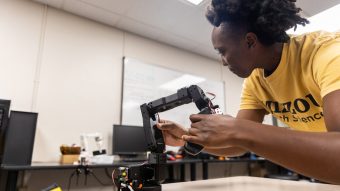Oct. 2, 2019
Ever tried to play duck-duck goose without talking?
For Benjamin Steger, a junior civil engineering major at the University of Missouri, that opportunity emerged in the middle of the African continent.
Steger and his fellow cadets in the U.S. Army ROTC Cadet Coalition Warfighter Program had been allowed passage into a federally protected tribal territory in Botswana to spend the night under the stars. That night, the tribe, with over 200 children eager to play with the cadets, decided to keep Steger and his companions engaged. Together, they played Frisbee, soccer, sang and showed each other dances, from traditional tribal dances to The Floss — a popular dance move in the U.S.
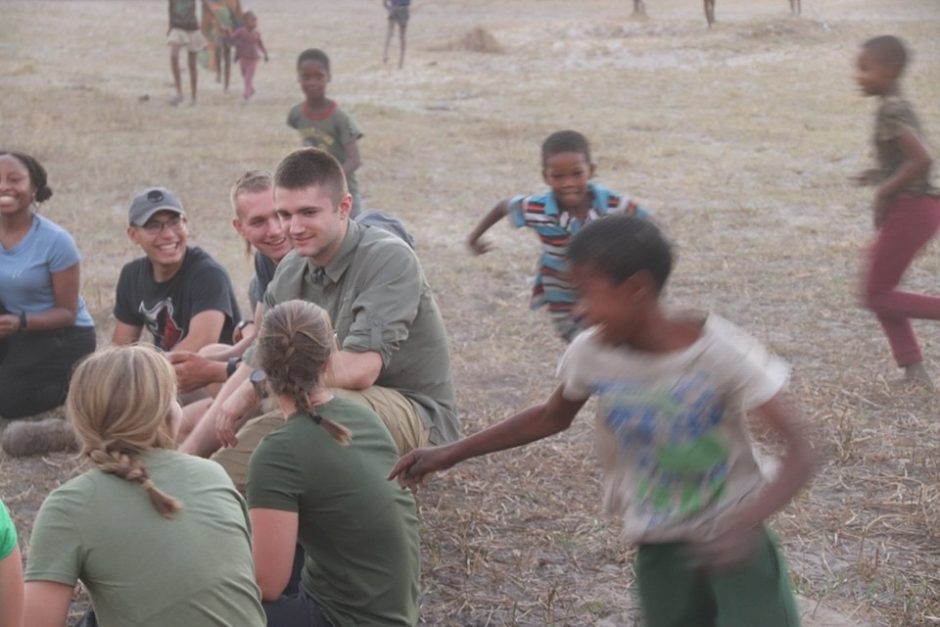
“For me, the duck-duck goose game was really meaningful because it demonstrated the fundamentals of cultural engagement,” Steger said. “We learned how to speak without having a common language. We only used our experience and non-verbal communication to accomplish some sort of shared goal — which ended up being a duck-duck goose game. That set the precedent for the evening.”
To Steger, helping the children play the game for the first time without using any spoken words was something he will always remember.
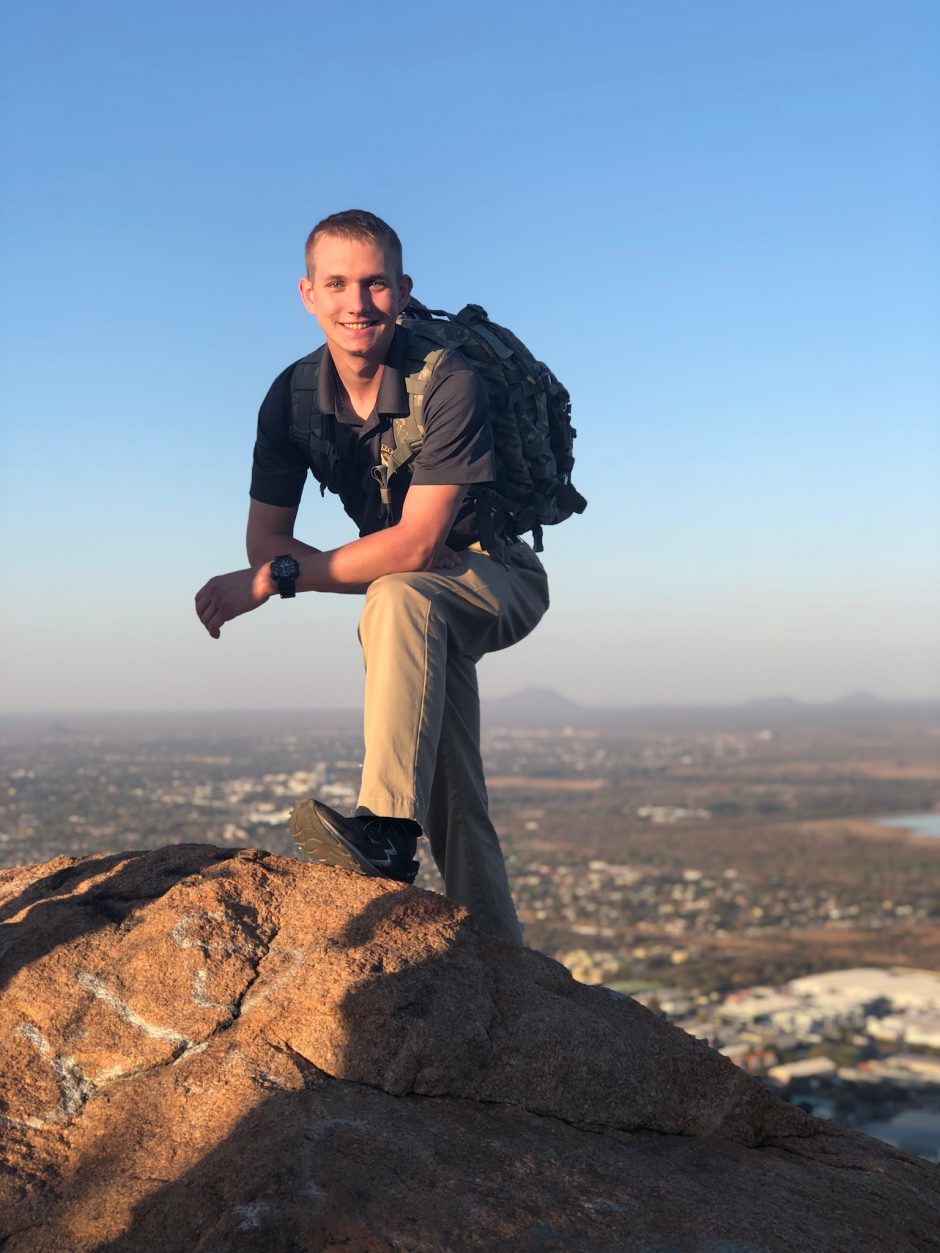
“It’s one of those experiences you can’t quite put into words,” Steger said. “It was truly a humbling experience and an honor to be invited by the village to participate in the music and festivities.”
Cultural engagement at work
Throughout his nearly three weeks in Botswana, Steger sought every opportunity he could to immerse himself in the culture, including completing assigned missions with the Botswanan military and learning from a Botswanan mission commander about different ways to engage with foreign and friendly cultures.
Steger admitted that adjusting to Botswanan culture was difficult at first. However, the U.S. cadets received plenty of help, as people around them were eager to teach them how to correctly pronounce names and use greetings and formalities.
“They wanted us to embrace their culture because we were guests in their home,” Steger said. “That was exciting for us, too, because we wanted to be there. We signed up for the trip because for all of us, it was a chance for us to really see what the world was like outside of our own little bubble here in the Midwest.”
He also found that he shared many similarities with the Botswanan youth.
“There was a massive age gap between us and the elders, just like there’s a massive age gap between me and my grandmother when I’m trying to teach her how to use a cell phone,” Steger said. “But, some of the local children said, ‘Hey, add us on Xbox, we should totally play Black Ops sometime!’”
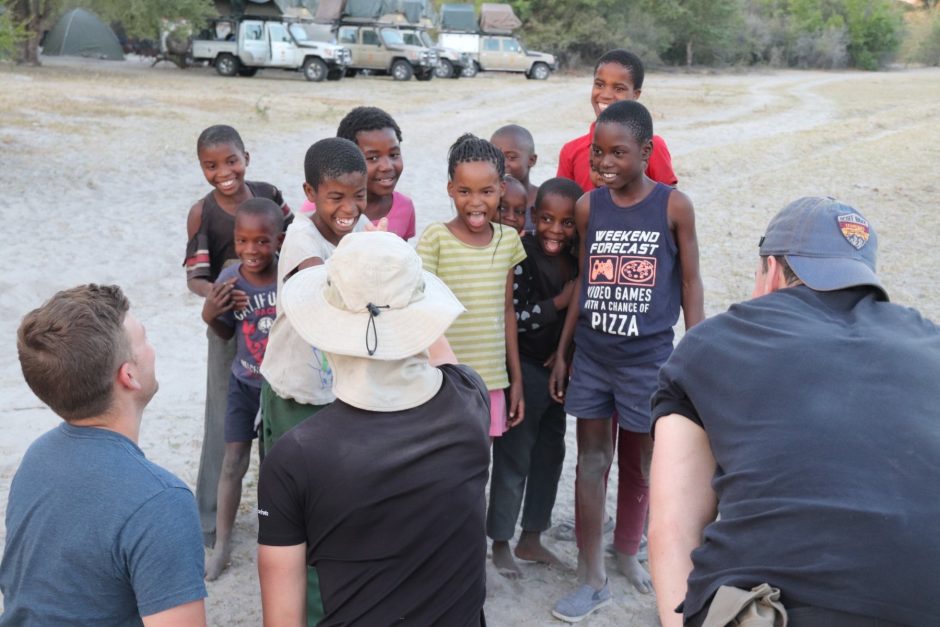
Real-life war games
As a future solider in the Army, Steger said his most favorite mission during the trip was working with the Botswanan Task Force officer candidates to conduct a full tactical exercise — receiving enemy fire and using a smoke screen to clear out enemy bunkers.
The Cadet Coalition Warfighter Program pushes future lieutenants of the Army into different parts of the world so that they can develop an awareness for how different communities may react to an American presence.
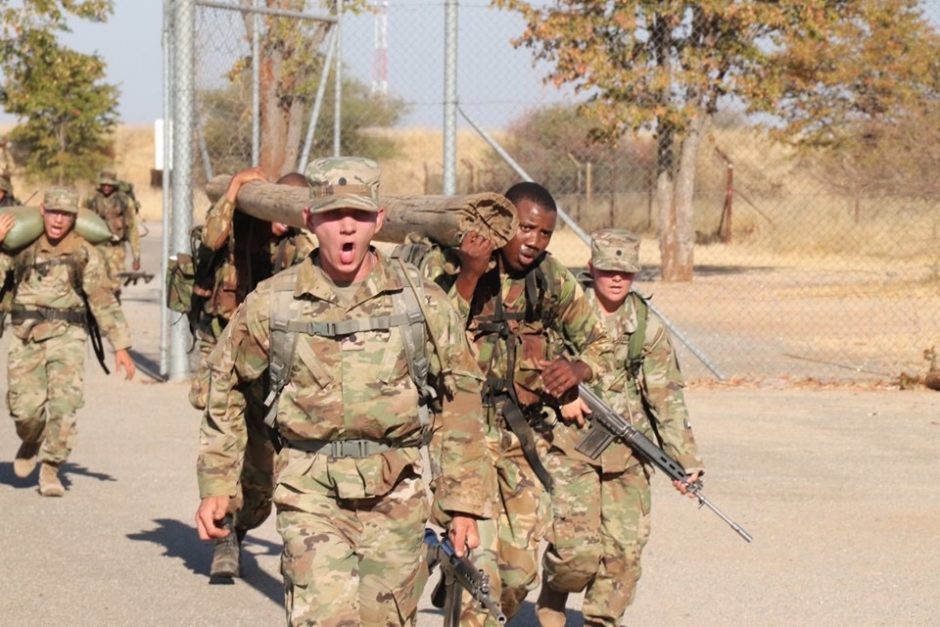
As a civil engineering major in the MU College of Engineering, minoring in both military science and global digital studies, Steger’s dedication to service inspires him to learn how to “help people be people.” His participation in the Mizzou ROTC program within the MU College of Arts and Science aligns with his dream.
“As a civil engineer, I wanted to know how we build things that enable humanity to survive, grow, evolve and adapt its biggest tools to meet the changes in the world and people’s needs,” Steger said. “In the Mizzou ROTC program, I’m learning how to keep the cornerstones of what makes our country what it is safe while still enabling the people who live here to live their lives freely.”
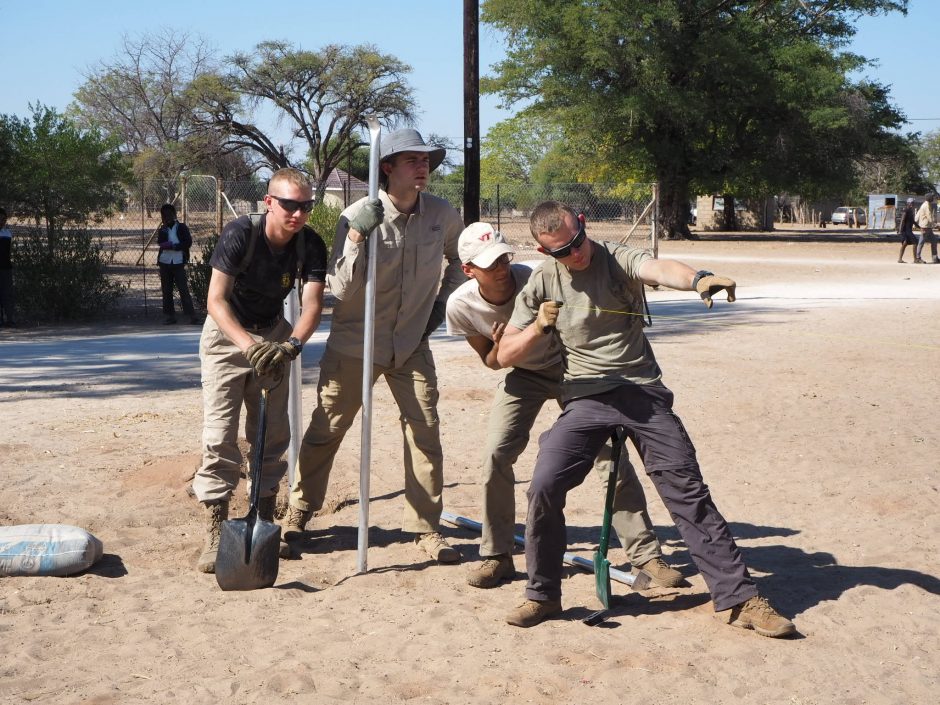
Steger now has an entirely different view of the world through his experience and is prepared to once again work alongside future coalition partners. He hopes to go into engineering or military intelligence while he serves. He said he feels more equipped now to be evaluated in becoming an officer next year.
The experience was not just military training for me,” Steger said. “I really walked out of this with a lot of personal growth and orientation toward what my goals are in life.”
